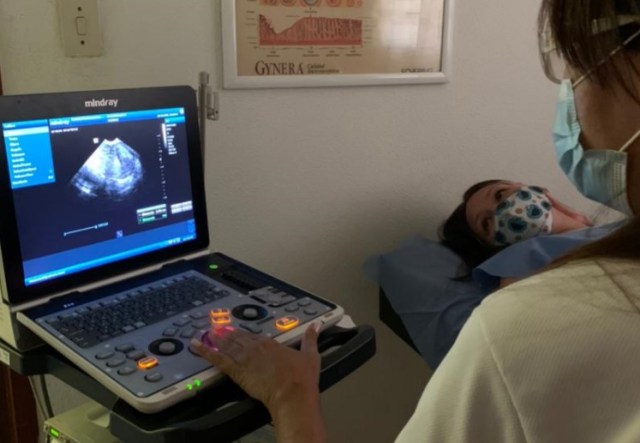
The deficient public healthcare system and the high cost of living are the barriers that women and men in Venezuela face daily when it comes to receiving timely medical care and receiving treatments for different pathologies.
lapatilla.com correspondent
Furthermore, given the widespread deteriorated state of Venezuelan hospitals, institutions such as the Anticancer Society in the Guárico State (SAG) stand out, a healthcare center that through self-management has become an ally for the prevention and early detection of breast cancer and other oncological diseases.
Marinela Bastidas, Director of the SAG, highlighted that from the Cancer Research Clinic – headquarters of the SAG, located in San Juan de los Morros, they try every year to promote activities to educate on the prevention of diseases such as cancer.
“Not only is it ‘Touch yourself so that he doesn’t touch you’ campaign, awareness drives to go to your gynecologist, mastologist, to perform complementary studies such as mammography, a radiological study that allows us to detect a very early lesions, which we call carcinoma in situ, and It is a cancerous lesion that has a very good prognosis at the time of surgery,” explained Bastidas.
Breast cancer mortality
In the study of “Cancer Mortality and Incidence” in the country, in 2021, presented by the Anticancer Society of Venezuela (SAV), some 3,128 deaths from breast cancer were recorded during the year which means an average of 9 deaths per day.
The aforementioned SAV report showed that the majority of patients who die with cancer are 75 years old or older. However, when it comes to breast cancer, the average age of those who died ranged between 55 and 64 years.
Currently, doctor Marinela Bastidas said she saw with concern an increase in the incidence of young women diagnosed with breast cancer, which is why she insisted on the importance of self-examination and gynecology and mastology control.
She assured that in 2023, the majority of patients who came for a check-up at the SAG did so for breast pain, which turned out to be benign lesions. However, she pointed out that they registered 10% of patients diagnosed with breast cancer.
Breast cancer and its high cost
For a breast cancer patient, family support is essential during treatment. However, in a country with a precarious public cancer care system and with a minimum salary that does not reach $5 per month, it is difficult to access surgeries, chemo, radiotherapy and other drugs necessary to combat the disease and prolong life.
“Supposedly the Social Security Administration has a high-cost drug pharmacy, but many times they do not have all the oncology medicines necessary for a course of chemo and patients have to buy them. There is one that costs $50 and must be applied at each of the six chemo cycles. The physiological solution is also very expensive, and so on and so on,” explained Bastidas.
She added that the surgical stage is also an odyssey for patients, due to what it means to acquire the full list of medical supplies for any surgery.
Bastidas also referred to the limitations that exist in radiotherapy centers. According to her, the only public radiotherapy services still working are in Maracay and Barcelona and are operational for breast cancer patients. The rest are private health centers that are inaccessible due to high costs.
SAG: a team effort
The Director of the SAG highlighted the work of an entire multidisciplinary team that includes different healthcare specialists who make the Cancer Research Clinic in San Juan de los Morros, a reference medical center to which patients from other states of the country come
“We have the advantage that we make the diagnosis here, because we have a mastologist, a surgeon, we do the radiological studies, the echo (graph), we send you to have your mammogram, we perform the biopsy, we have a pathologist who does the study right here in the clinic, and the we refer her to the oncological surgeon or to the Ranuárez Balza Hospital,” explained Bastidas, who clarified that they still do not have chemotherapy and radiotherapy services.
Precisely, within the framework of the Day to Fight Breast Cancer this Thursday October 19th, a free care day was held in which more than 30 women were treated. This included a mammogram and evaluation by a mastologist.
In addition, Bastidas extended the invitation to all citizens in the capital of the Guárico State to participate this Saturday, October 21st, in the Pink Walk, an event in which each year funds are raised to improve the physical structure and acquire new equipment for the Research Clinic.